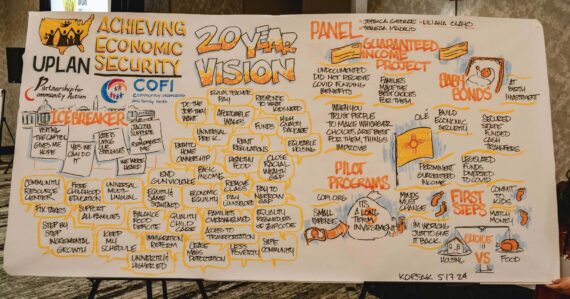The lack of affordable child care and early education is an urgent issue in our communities. As parent leaders, we know that high quality early care and education is not accessible to families of many income levels and economic statuses. We feel the impact of having to choose between paying for quality early education and covering household expenses like food, transportation, and housing. We feel the harm caused by high co-payments in child care assistance programs, unfair eligibility requirements, complicated authorization and enrollment systems, and the scarcity of services for families with disabilities, English language learners, and infants and toddlers. UPLAN advocates for policies that meet the needs of diverse families and equitably provide resources where they’re most needed (see UPLAN’s Child Care, Early Care and Education federal policy vision and goals here).
Committed to this vision, parents have been following recent efforts by the Administration to engage with communities about child care and early education. Some of us attended regional roundtable discussions held across the country by the U.S. Department of Health and Human Services (HHS) Administration for Children and Families (ACF) this fall. Parents also submitted public comments in response to ACF’s Request for Information (RFI) on Improving Access to Affordable, High Quality Child Care.
As parents, we take our engagement on these issues seriously. Each time we share our stories and bring our communities’ voices to policy makers, we do so in the spirit of two-way engagement. When we take time away from our families, jobs, and other community activities to present our views to decision-makers, we do it in service of true democracy. We expect evidence that policy makers listened to our input, valued our expertise, and transparently integrated it into the systems and programs they govern.
In alignment with this vision, UPLAN has a proposal to strengthen authentic family engagement in federal policy – an Office of Parent Engagement and Parent Advisory Council. In 2018, UPLAN presented a plan to the U.S. Department of Education and delivered over 1,200 post cards from our members in support of this idea. At the local and state levels, we have helped establish permanent mechanisms for parent voice in policy decisions through advisory committees, task forces, and commissions. These structures build relationships and trust, facilitate ongoing, two-way communication, and keep policy makers accountable to integrating parent input into their decisions.
As we continue to advocate for real parent engagement in federal policy, we are disappointed by the Administration’s recent efforts toward dialogue on child care and early education. Parents who attended the roundtable discussions and responded to the Request for Information are waiting for a transparent summary of the Administration’s findings and clear next steps. It’s unclear how a December 12 invitation only White House Summit on child care and family leave connects to the previous engagement efforts, and how parent input is being integrated throughout. We have a difficult time trusting a process that quickly changes course.
Parents are experts on what’s needed in the child care and early education system. There are examples across the country of authentic partnerships among parents and policy-makers that lead to the ongoing engagement needed to implement solutions. Parents have recommended collaborations between hospitals and child care assistance programs to better educate parents about the process during pregnancy. We have helped state administrators understand their own data, to identify redetermination and other practices that may push families out of the subsidy system. We have offered solutions to the problem of subsidized child care being too costly by allowing deductions (such as housing and health care costs) when assessing a family’s eligibility and co-payments.
Therefore, when developing innovations or system changes to child care and early learning policies, federal officials will make decisions that reflect the reality of what’s needed if a diverse, representative group of parents is engaged in a sustained, transparent, and authentic way. Our democracy depends on ongoing community engagement that doesn’t just “check a box” but values the expertise of those directly impacted by the issues.



